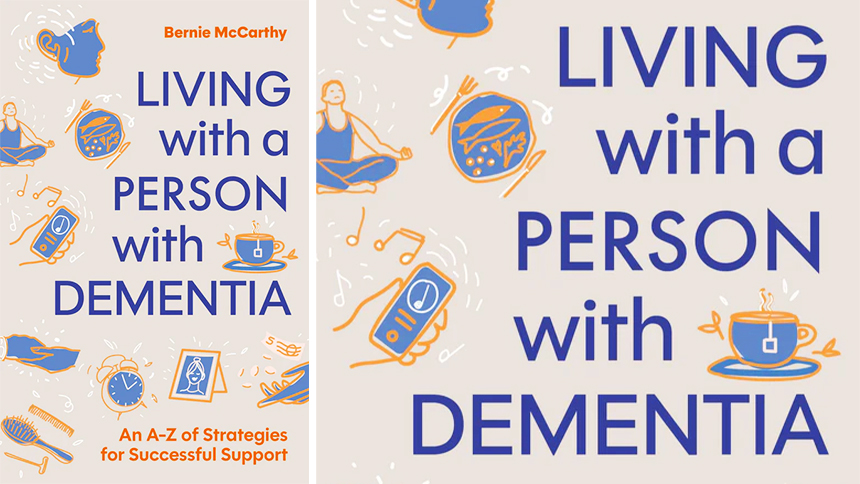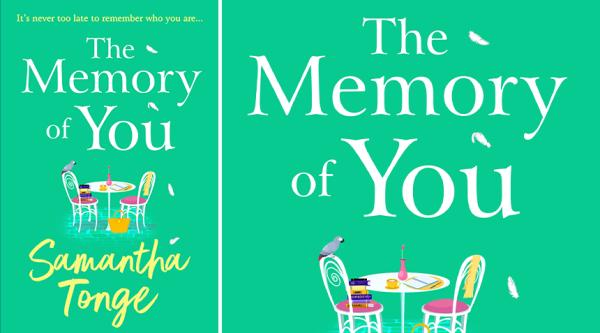Information
Book group: Living with a Person with Dementia
We read a book that aims to help carers to understand dementia and to deal with issues that come up.
Author Bernie McCarthy is a clinical psychologist, based in Australia, with over 25 years’ experience working with people with dementia and their carers.
He’s passionate about person-centred dementia care and this book is about sharing his experience and insights with a wider audience.
Living with a Person with Dementia is split into two parts.
The first is about emotions and relationships, exploring the journeys taken by people with dementia and those caring for them. The second part is more practical, with an alphabetical reference of common issues and situations.

Great book for dementia carers
Our reviewers agree that the book is a great go-to for carers.
It’s not a book to be read cover to cover, says Patricia.
‘I have dipped into the parts which I found interesting and relevant, as a long-time carer of my husband who has mixed dementia and is now in a residential care home.’
AC from Rutland says, ‘The advice is well presented, easy to find and offers some sensible solutions to common problems.
‘A good book to have at your side when you feel in need of support.’
Several reviewers highlighted the author’s analogy comparing carers to the Sherpa guides who support mountain climbers in the Himalayas.
‘I liked the analogy,’ says Kym in London. ‘It’s a way of visualising our role as guiding and supporting our loved ones.’
An honest book about caring
For Toto2 in East Sussex, the first part of the book stands out because of its honesty.
‘It shows you how each scenario could play out, from emotions, sleep disturbances and how the relationship between the person with dementia and the carer changes over time.’
‘It explains dementia in the brutal and no-nonsense way that carers face numerous times a day, with very helpful tips, tricks and distraction when needed.’
Carol R says, ‘It provides suggestions and guidance on why different emotions and behaviours can occur in someone with dementia and how a carer can support a person with dementia without being confrontational or imposing.
The aim is to continue a positive relationship without undermining an individual’s confidence and dignity.
For Kym, the information around child brain development and early attachments was particularly enlightening.
Both Miriam in Ireland and Harbir enjoyed the author’s relationship compass tool, showing the different ways carers can relate to a person with dementia.
‘Approaches to navigation are many, needing a “compass” with many points and positions so that you can maintain the wellbeing of the person with dementia and the carer,’ adds Harbir.
Useful A-Z directory about dementia
The second part of the book is much more of a directory, explaining terms that have been italicised in the first.
Our reviewers found it useful and practical, and Miriam says you can navigate the book easily.
‘The author provides a quick-fire, accessible means for dementia caregivers to seek and find relevant information in a timely manner.’
Carol R adds, ‘Terms and issues are presented in an easy-to-read format and can be used as a quick reference. For example, why things happen and how you can manage a situation.’
Toto2 agrees, ‘The A–Z symptoms layout was a really good, well thought out idea and allowed me to go to each section easily.
‘The symptoms are explained in a “no-nonsense” way and in terms that make sense without “jargon” that we do not understand.’
Academic insights into dementia
Although the author has a great passion for person-centred care, several of our reviewers say the book is dry and technical in places.
Kym says that part one is particularly academic.
‘This is fine for me as I am a teacher and have qualifications in child development, but I feel that some of the language and concepts may be a little too academic for many people to engage with.’
Patricia says it could be a challenge for an exhausted carer to take useful advice from the book, especially given that dementia is so unpredictable.
‘I would not have had the energy, time or motivation to seek out this book or read it.
Its words of wisdom and information are not necessarily going to be relevant in the split moment when a carer has to react, cope, manage and make decisions.
‘I have needed immediate knowledge and support to manage the trauma, exhaustion, heartbreak and total bewilderment that dementia brings.’
Kym also says that, because the book tries to speak to everyone, it ends up losing specific relevance.
‘I sensed that the author tried to include advice that would be applicable worldwide.
‘I would prefer a book that applies to the systems and policies of the place where I live.’
Wide audience among people affected by dementia
Our reviewers have mixed views on who the book would be best for. Miriam thinks it could have wide appeal.
‘This book offers much support, encouragement, hope and compassion.
‘It is an extremely valuable resource for family members, caregivers, members of multidisciplinary care teams and all who seek to understand more about improving quality of life for those living with dementia.’
Miriam also thinks that people with dementia could benefit.
Meanwhile, Patricia thinks it’s best for people interested in dementia but not necessarily affected by it.
‘I see it almost as a “text” book, useful to anyone who is starting out on the road to find out about dementia or care, not necessarily as a carer.’
Toto2 has a different view, thinking it could be part of a carer’s essential ‘toolkit’.
‘I will carry this with me at all times, as it is a true gem of information that is both invaluable and helpful.
‘It’s brutally honest, but dementia is brutal.
It may make you see dementia in a different way and you will definitely have a better understanding of what your loved one is going through.
‘It will show you that you can survive this awful journey with some clever and helpful advice.’
Living with a Person with Dementia: An A-Z of Strategies for Successful Support by Bernie McCarthy (Jessica Kingsley, 2025), 224 pages, £14.99, ISBN: 9781839973826.
Take part in our book group
For our next book group, we invite you to read Remember When: My life with Alzheimer’s by Fiona Phillips (Macmillan, 2025), 336 pages, £22.00, ISBN: 9781035074877. Also available as an ebook and audiobook, paperback due out in 2026.
Tell us what you think of this compelling memoir from a well-known TV presenter who was diagnosed with young-onset Alzheimer’s at age 61.
Email us by the end of 3 November 2025 to take part.



